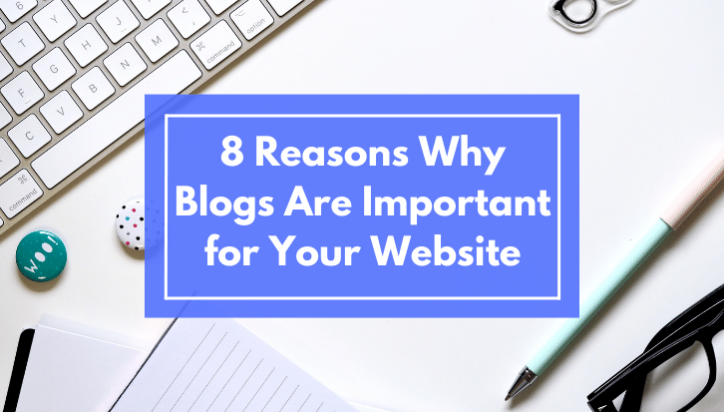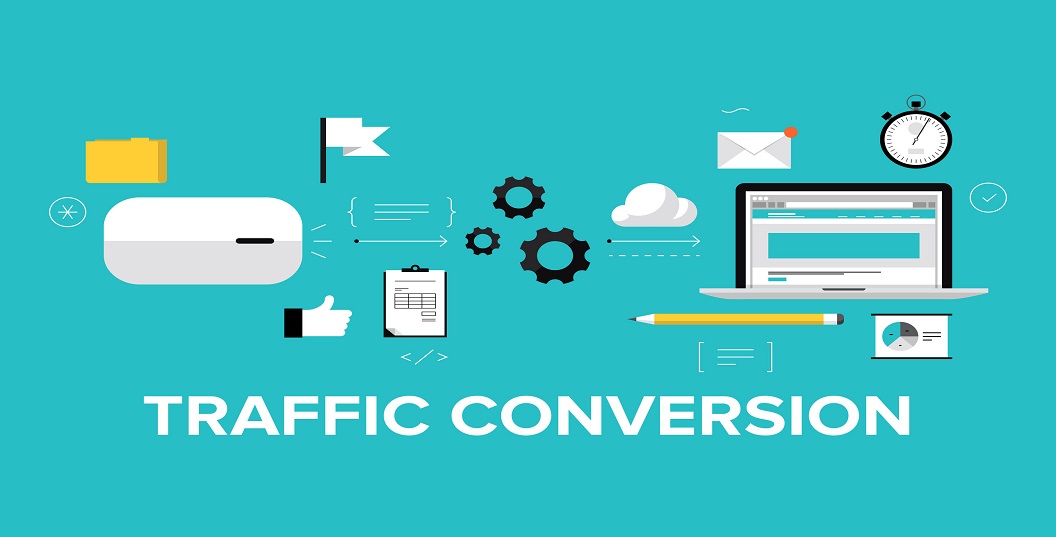
8 Reasons Why Blogs Are Important for Your Website
Blogging is a common practice in digital space. It plays a prominent part in marketing that has been consistent over decades, despite being changed quite a bit in strategy. Even with the rise of diverse, innovative tools that facilitates visibility, the value of a blog cannot be overlooked.
Most people know that blogging is an important part of any considered online marketing plan. And most importantly, it helps with SEO on a business website. But less know exactly how. So, let’s cover all of the direct and indirect ways in which blogging helps SEO.
Blogging helps SEO, but how?
Integrating blogging as a part of your SEO strategy unlocks a host of advantages. Not just it empowers you to amplify your keyword reach, but it strengthens other key ranking factors like fresh content, augmented backlink profile and more. Let’s know in detail.
1. Improves your visibility in Google

Regular blogging incorporating your business keywords is one of the easiest ways to optimise your website for search engines. If you can commit to writing even a blog article a month, the results are soon going to be there in terms of your Google ranking.
2. It lets you target SEO-optimised keywords naturally
People often start out doing SEO wanting to aim for the most relevant keywords for their business. Each blog post you publish on your website presents an opportunity to focus on fresh keywords, which results in having a profound effect on your ranking. Because incorporating new keywords into your content, you can maximise the likelihood of securing a high-ranking position on Google, along with attracting valuable organic traffic.
SEO is a really competitive field, and one best bet for businesses is to look for specific keywords people are searching for. Let’s assume you already have optimised landing pages for your main keywords. But when there are hundreds of websites targeting the same keyword, the competition would be tough to get organic traffic.
Here blogging comes to the rescue. Targeting keywords with blog posts is way easier as you don’t require to worry about how they fit into the site structure. Instead, you can choose to go after more targeted long-tail keywords or other popular keywords that might fit awkwardly into product pages or homepages. And the promotion also seems way more natural.
3. Provides a means of engaging with new customers
If you’re producing quality, enjoyable content, your blog will get noticed, one way or another. Good posts will be shared by people, already reading your blog, with new people who may not know about you yet.
The blog will, in turn, get more exposure for your company and bring new customers in. You will be able to directly interact with anyone who has found your blog article informative or helpful via social media and comments on your blog, encouraging people to engage with your business.
4. Helps to create the brand identity

You can think of this as just another way to get your current and future customers to like and remember your brand above your competition. It’s been proven that buyers respond to people they feel they have some sort of connection with; this is ultimately why ‘being able to sell’ is a unique skill. Your blog gives you a chance to give your business a personality without needing to converse directly with your customers.
5. Shows off your expertise

Articles that cover various aspects of your business will communicate to your customers that you are a master of your field. This improves the likelihood of them buying from or recommending you to someone else.
6. Opportunities for internal linking and backlinking
Links are the backbone of search engine result pages. The blog post holds a chance for a handful of internal linking possibilities on the main pages of your website. And adding internal links to your blog content will give users a chance to keep clicking on your site and stay around a little longer.
Earning external links is another hardest part of SEO. But in order to make your site more authoritative and trustworthy to Google, you need to have links back to your site from respected sites. And it is the blog posts that earn backlinks. With every single high-quality informational blog post you publish, you can attract backlinks. They will link to you as a resource or as something related to their discussion.
7. It signals activity to search engines
Checking the blog page can provide valuable insights. As the internet is home to billions of websites, a consistent flow of fresh content is a must to signal activity. It acts as the heartbeat that keeps the website active and alive. Otherwise, if a blog page hasn’t been updated in years, chances are that the business may no longer be operational. When a website goes silent, search crawlers adapt and minimise the frequency of visiting. And this results in decreased visibility for the site.
8. Keeps visitors on your website for longer

While the majority of blog readers are after information rather than necessarily being after a service, attracting these visitors who are keen to spend time reading on your website still boosts your chances by a margin that makes it well worthwhile.
At the same time, casual browsers may see a blog topic on your homepage that grabs their attention, which draws them in and keeps them on the website for that little while longer, and improving the likelihood they would buy.
Website conversions are a numbers game, and the numbers indicate that a well-utilised blog increases the time visitors spend on a website.
The only real catch with blogging is that you have to actually blog; it isn’t your golden ticket to more conversations without any work on your end. A blog is an affordable tool that can be used to significantly improve your website’s ability to attract visitors and the likelihood that these visitors will become customers.
If your business website doesn’t have a blog yet then we strongly encourage you to add one soon. Contact us if you need help with design and manage your business blog.
You read a lot. We like that
Want to take your online business to the next level? Get the tips and insights that matter.





